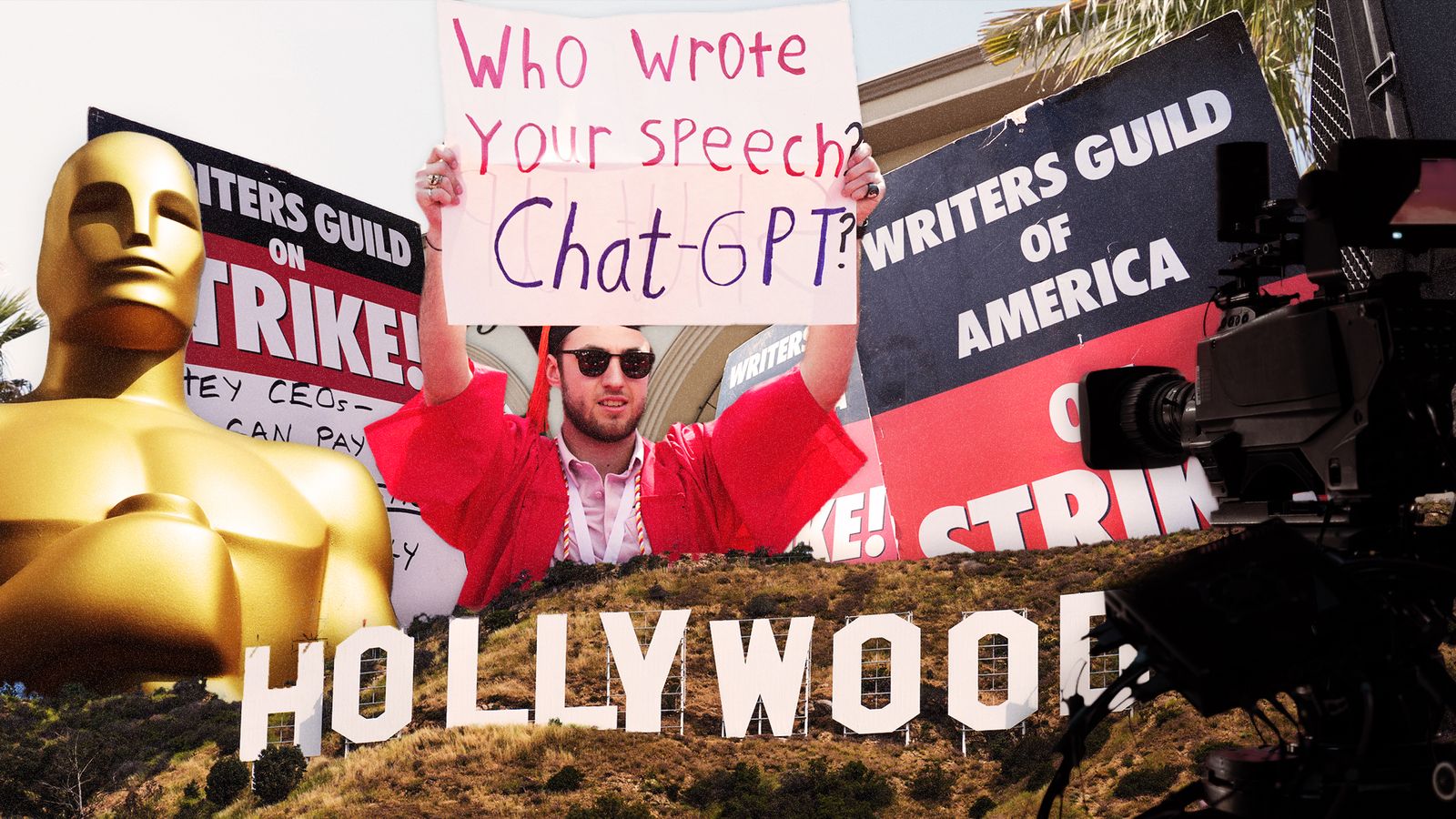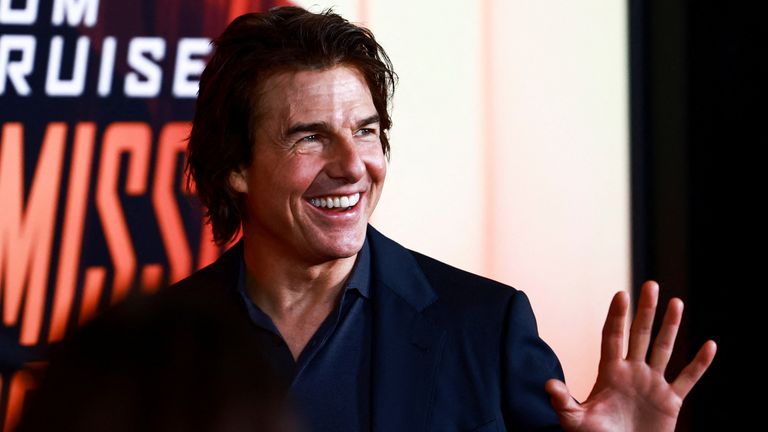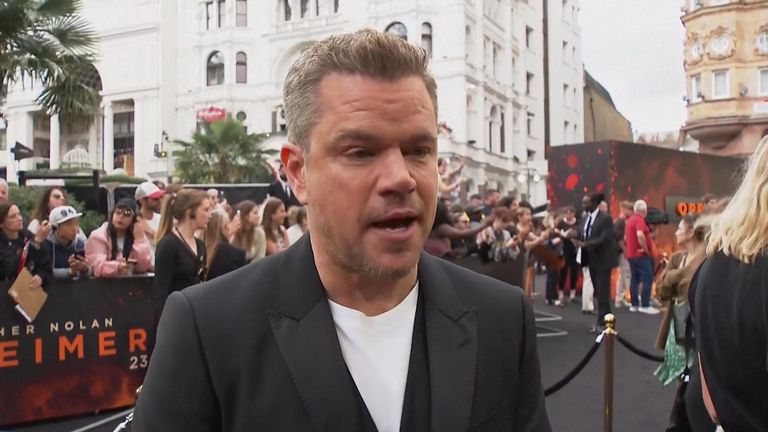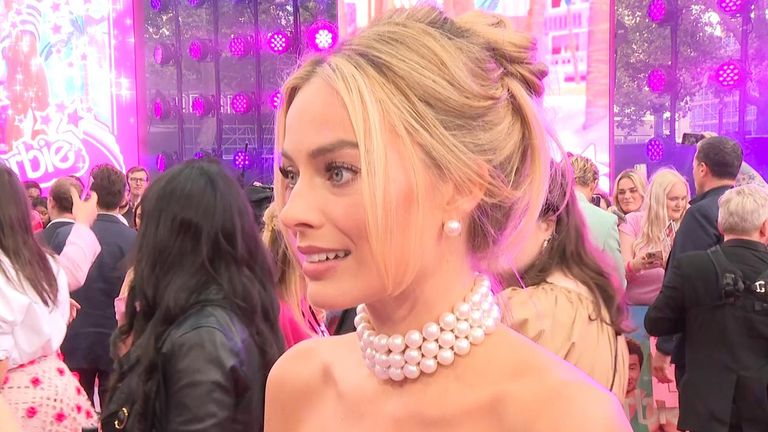Hollywood actors are going on strike after talks with studios broke down, joining film and television writers who have been on picket lines since May.
Fran Drescher, the president of the US actors’ union, says its walkout will impact “thousands if not millions of people”.
The strike, organised by the Screen Actors Guild – American Federation of Television and Radio Artists (SAG-AFTRA), is likely to have far-reaching reverberations beyond the sun-soaked streets of Los Angeles.
It also comes as Hollywood grapples to get to grips with how technology is rapidly changing the way visual entertainment is made – and watched.
Why are the actors striking and what do they want?
Actors are seeking higher pay and safeguards against unauthorised use of their images through artificial intelligence (AI).
Performers see their jobs as especially vulnerable to new technology, with generative AI able to replicate facial expressions, body movement and voice with alarming accuracy.
Many would like to see a guarantee that AI will not be used to replace the duties performed by actors, potentially rendering them obsolete.
Stars including Tom Cruise and Keanu Reeves are among the actors who have been the subject of widely viewed unauthorised deepfakes – realistic yet fabricated videos created by AI algorithms.
The streaming boom – which provides the bulk of TV actors’ work – is also a big factor in contract negotiations.
Series have become shorter, breaks between seasons longer, and the unions saying that although series budgets are rising, that increase is not being reflected in the share of the money coming to performers.
Residuals (payments for the reuse of credited work) are also much smaller on streamers compared to broadcast TV rates.
Actors have also flagged the burden of “self-taped auditions” (when actors are asked to film their own audition and send it in directly for consideration by the casting director).
This cost was previously the responsibility of the casting and production teams, who would set up auditions at a set location themselves and organise the filming of invited actors. But now that’s all changed.
Benefits including health and pension plans have also been the subject of talks.
But SAG-AFTRA says that, after four weeks of intensive talks, film and TV bosses have refused to budge.
What do the studios say?
The Alliance of Motion Picture and Television Producers (AMPTP) – the association representing major Hollywood studios including Walt Disney and Netflix – disputes the SAG-AFTRA’s version of events.
It says a deal, including better pay and AI safeguards, has been offered, and accused the union of walking away from talks.
In a statement, it said: “We are deeply disappointed that SAG-AFTRA has decided to walk away from negotiations.
“This is the union’s choice, not ours. In doing so, it has dismissed our offer of historic pay and residual increases, substantially higher caps on pension and health contributions, audition protections, shortened series option periods, a groundbreaking AI proposal that protects actors’ digital likenesses, and more.”
When is the strike and how long will it last?
The walkout was officially set to begin at midnight on Friday 14 July (Los Angeles time).
SAG-AFTRA said picket lines would start that morning, with the strike continuing indefinitely.
No date has been set for when it will end.
When asked how long it would last, union president Ms Drescher told reporters at a press conference on 13 July that it was “up to” film studios.
What does the strike mean for movie and TV fans?
A lot depends on how long it goes on for. If the dispute is resolved quickly, disruption may be limited.
But if it drags on, as some fear, many film releases will be delayed and television shows could go off air.
What makes the industrial action so historic is that, for the first time in 63 years, both SAG-AFTRA and WGA (the Writers Guild of America) will be on strike at the same time.
Members of the WGA have been striking for the last two months and that has already had a big impact on productions such as season five of Stranger Things, season two of The Last Of Us, season six of The Handmaid’s Tale and Game Of Thrones spinoff A Knight Of The Seven Kingdoms: The Hedge Knight.
With actors and performers joining writers, that disruption is only going to get worse.
In short, Hollywood is effectively being shut down and will come to a near-standstill. With no scripts, and no performers to bring them to life, many studios will fall dark.
If both strikes were to continue on for many months, next year’s theatrical release schedules could run into difficulties, causing a big problem for studios who put much time and energy into selecting the release dates for their films.
Numerous film festivals leading into awards season could also be hit, with carefully planned campaigns falling foul due to lack of actors to share the buzz of their films.
The 75th Emmy TV awards is also due to take place in September.
But trade magazine Variety has reported organisers are considering delaying the ceremony to November or even January due to the Hollywood walkouts.
Other upcoming dates which could be hit include the Toronto and Venice film festivals.
Looking beyond the inevitable disappointment of movie and TV lovers, the strike is likely to have a big impact on the financial side of the business too.
The box office has recently begun picking up post-pandemic, with the US nearing $4bn for the year and running 30% ahead of the same January-to-early June period.
It’s a pickup that would inevitably suffer from prolonged actor walkouts.
News and broadcast work would not be directly affected by the strikes.
Has a US actors’ strike happened before?
The last time Hollywood actors went on strike was in 2000 in a six-month dispute over their commercials contract.
The US actors’ union successfully defended the “pay-for-play” TV advert payment formula, by which actors are paid residuals for the number of times their commercial airs, and reached an agreement over cable and internet advertising.
Prior to that, US stars staged a 95-day strike over terms for paid television and VHS tapes back in 1980, achieving a 32.5% wage increase and a 4.5% of the gross revenues for home media releases.
What does it mean for UK performers?
Still recovering from the COVID pandemic, and now dealing with a cost of living crisis, the UK film industry already has plenty on its plate.
Equity, the British performing arts and entertainment union, has offered its support to the US strike and said in a statement that it “stands full square behind our sister union in their claim, and the action their Board have agreed to take”.
While events in the US will not directly affect those working in the UK, it is thought that British performers who are members of SAG-AFTRA and working in the US will lawfully be allowed to take part.
Could an actors’ strike happen here?
As an independent union, Equity, which has 47,000 members, has not called its own strike in solidarity with US actors.
However, Paul W Fleming, the general secretary, said the union was always “strike ready,” describing it as one of the “key objectives” of the union.
The UK’s current Pact-Equity contracts are due to enter negotiations later this year, having not been updated since 2021, when a transitional contract was put in place during the pandemic.
Deals are normally struck every two to four years.
Pact is the UK trade body which represents independent production and distribution companies.
With all the same issues at stake as the US actors, it’s likely that the influence of AI, streamer payment rates and self-taped auditions will also form key parts of the upcoming UK negotiations.
Mr Fleming says a “framework” setting out “exactly what AI is and where it is used” is what now needs to be put in place to protect performers.
Equity is already in talks with ITV over AI clauses in their agreements.
So watch this space.




